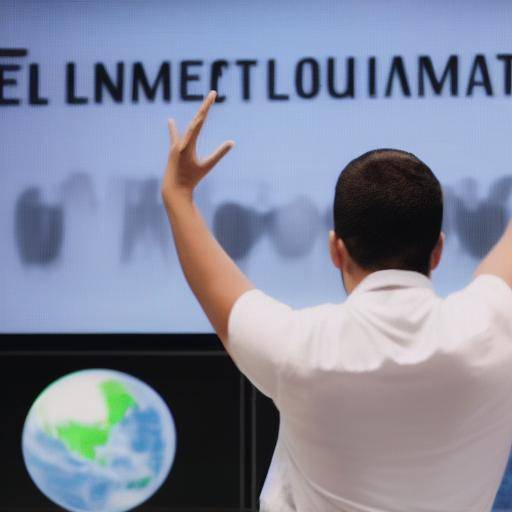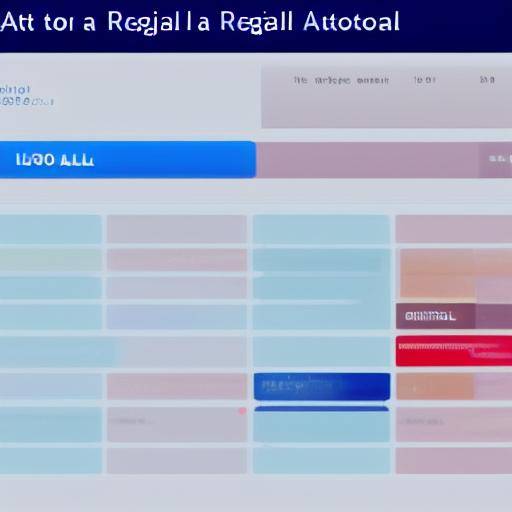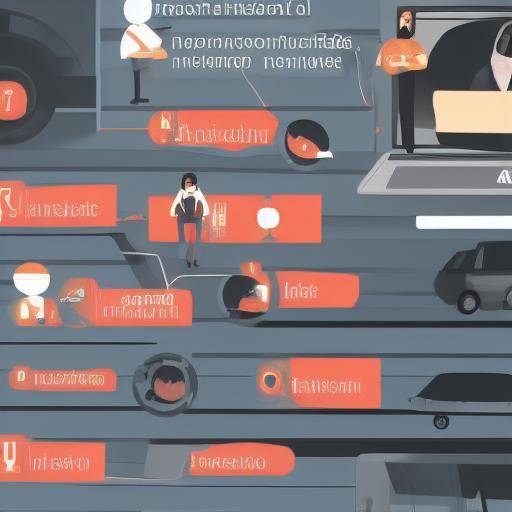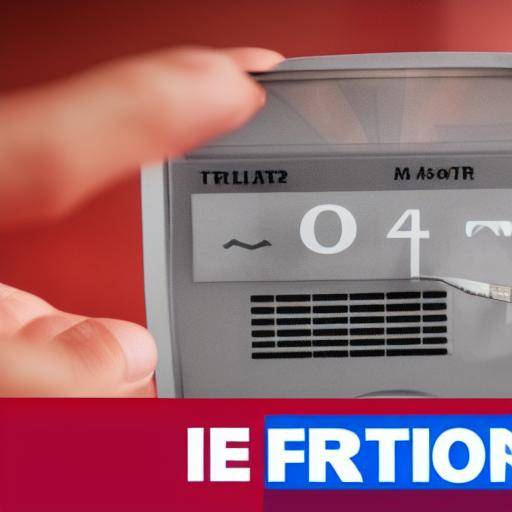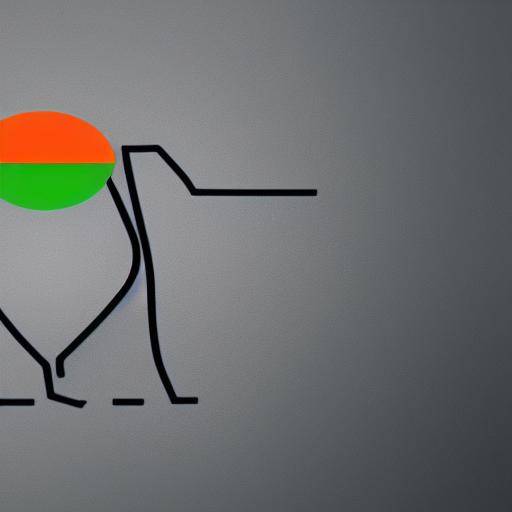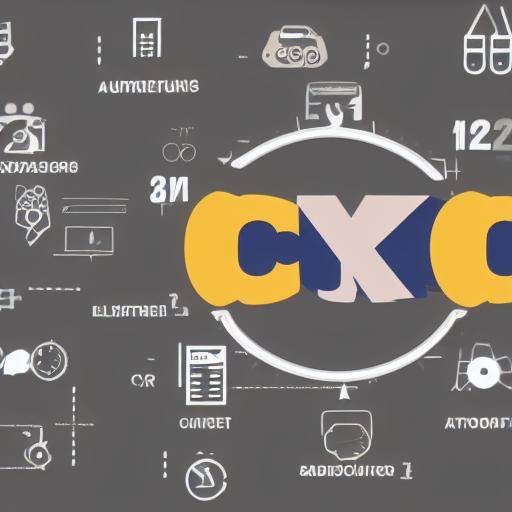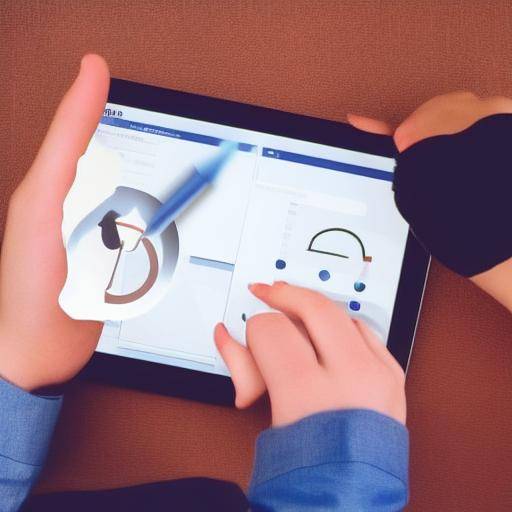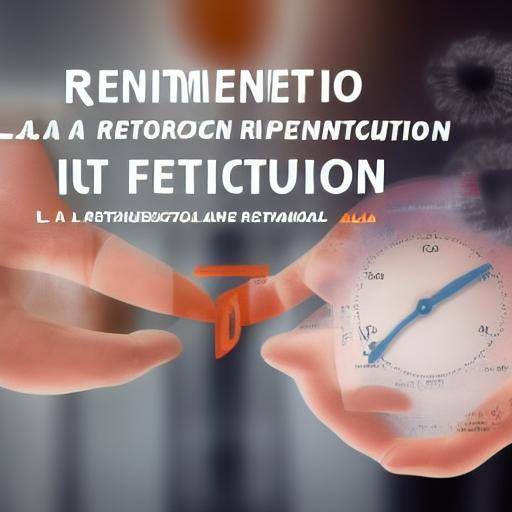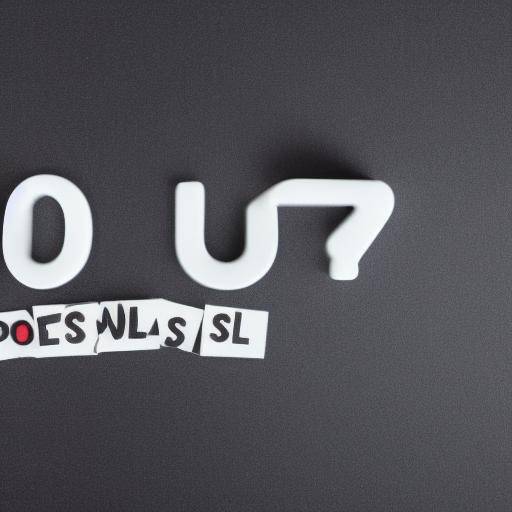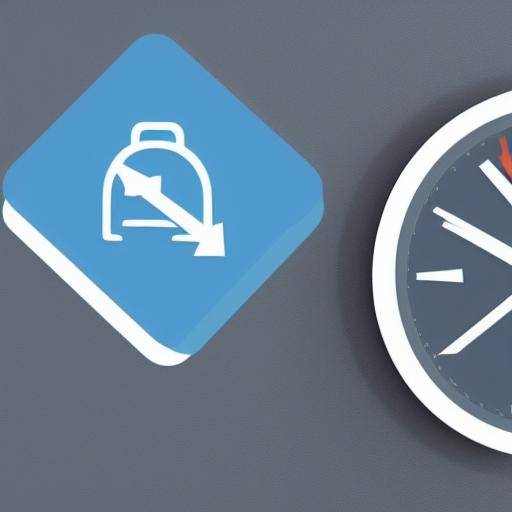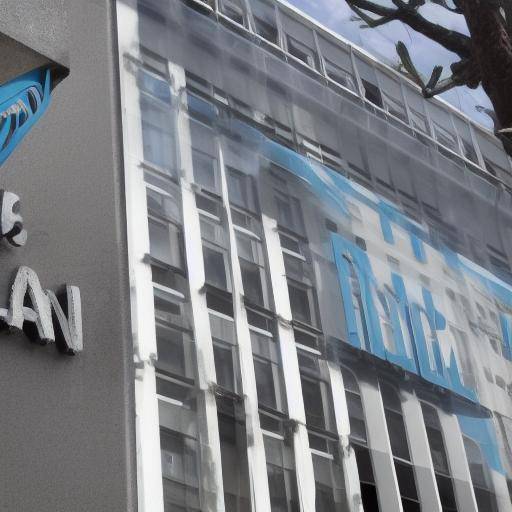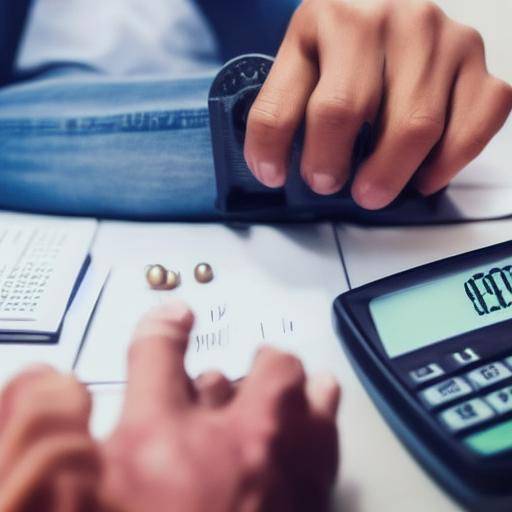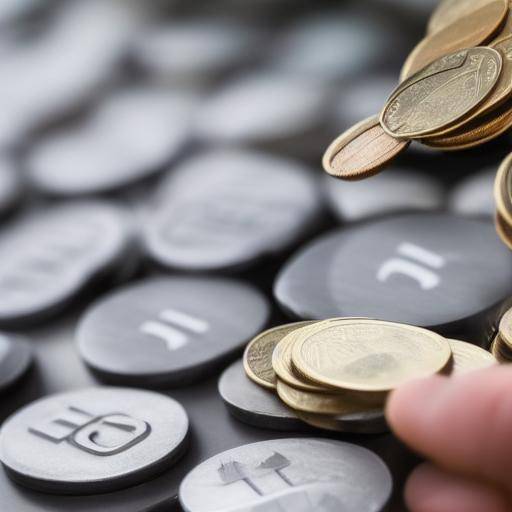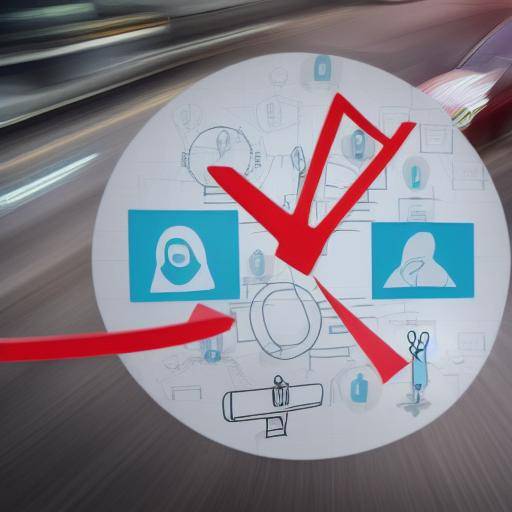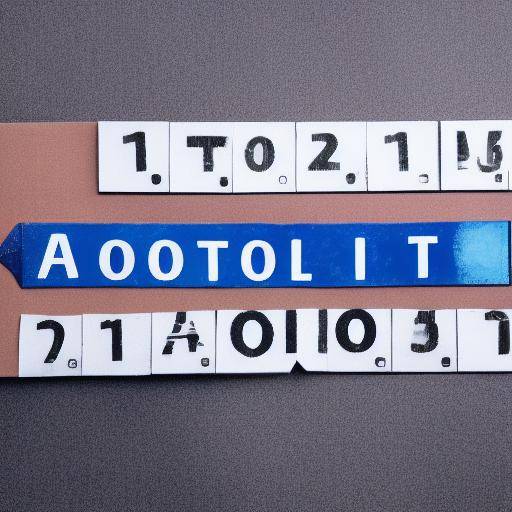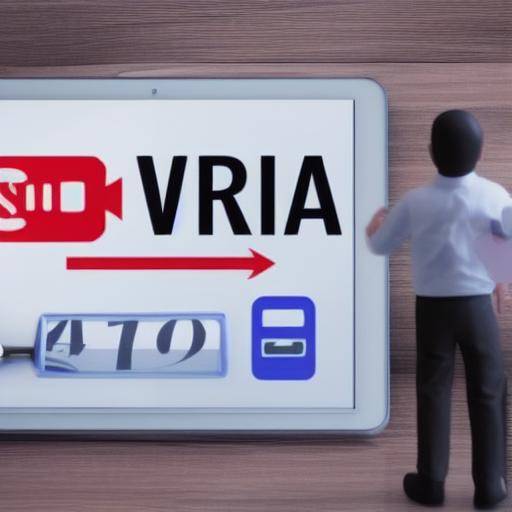
Effective management of money is critical to financial stability and long-term economic goals. However, many people struggle to maintain healthy financial habits. In this article, we will explore the importance of self-evaluation in improving financial habits, analysing in detail how self-evaluation can be a powerful tool to promote a positive change in money management and financial habits.
Introduction
Self-assessment in the financial sphere is a crucial process that involves reflecting on our behaviors, attitudes and decisions related to money. Through self-assessment, people can identify strengths, weaknesses, improvement areas and spending patterns that may be negatively impacting their personal finances. By better understanding their relationship with money, people can take concrete steps to rectify unwanted behaviors and establish more positive and sustainable financial habits.
In this article, we will address self-evaluation from different angles, from its historical importance and evolution to its practical application in money management. We will analyze in depth the benefits and challenges of self-assessment, providing data, real examples and practical advice to improve financial habits. In addition, we will explore the perspectives of industry experts, compare different approaches and discuss future trends related to self-evaluation and money management.
History and Background
The practice of self-evaluation in the financial sphere has deep roots in the history of the administration of money. From the first financial structures in ancient civilizations to modern theories of money management, self-evaluation has been an essential element in improving personal and collective financial health. By exploring the historical evolution of self-assessment, we can see how it has influenced how people perceive and manage their economic resources over time.
A crucial milestone in the history of financial self-assessment was the emergence of the first treaties on money management in ancient society. From the teachings of Greek philosophers on moderation in spending to the first Chinese treaties on savings and investment, there is a constant concern about how people manage their economic resources. Over time, approaches and methods to evaluate financial habits have been refined, incorporating influences from various schools of economic and financial thinking.
They highlight the contributions of thinkers and economists who have promoted the importance of self-assessment in money management, such as Adam Smith, John Maynard Keynes and Milton Friedman, whose theories have influenced how people understand and address their personal finances.
Analysis of Deepness
Self-assessment in money management offers a number of significant benefits that can transform the way people manage their finances. By honestly and critically reflecting on financial habits, people can identify negative patterns of behavior, such as impulsive spending, lack of savings or excessive indebtedness. This self-assessment process allows them to become aware of their financial decisions and to understand how they influence their economic well-being in the short and long term.
One of the fundamental challenges of financial self-assessment is to overcome psychological barriers that can hinder objectivity and honesty in the process of reflection. Ingrained emotions, beliefs and ingrained habits can hinder people's ability to impartially evaluate their financial habits. However, in recognizing and addressing these obstacles, people can develop a clearer understanding of their relationship with money and take concrete steps to improve their financial practices.
Financial self-evaluation not only helps identify areas of improvement, but also encourages the establishment of clear and achievable financial goals! By carefully analysing their financial habits, people can set realistic goals related to savings, investment, debt reduction and future planning. This proactive approach allows them to draw a financial course based on informed decisions and aligned with their personal values and aspirations.
Comprehensive review
The practical implementation of self-evaluation in money management is seen in different contexts, from personal financial management to strategic planning in business environments. In the personal domain, financial self-assessment entails a detailed review of income, expenditure, debt, investment and financial objectives. People can use tools and methods such as cost tracking, budgeting and financial statement analysis to accurately assess their economic situation and make informed decisions.
On the other hand, financial self-assessment has a significant impact on the viability and sustainability of the organizations. Companies conduct detailed assessments of their financial statements, cash flows, cost structures and investment strategies to identify opportunities for improvement and mitigate financial risks. Self-assessment can also be critical in identifying areas of inefficiency and formulating strategies to maximize financial performance.
Several financial management experts have emphasized the importance of self-evaluation in sound and sustainable financial decision-making. Self-assessment enables the identification of optimization opportunities and the design of concrete action plans to achieve financial goals. By critically analysing financial habits and money management practices, individuals and organizations can generate positive changes that contribute to their long-term economic stability and well-being.
Comparative analysis
When talking about self-assessment, financial habits and money management, it is crucial to understand the interconnection between these elements and how they relate to influence overall financial well-being. Self-assessment acts as the starting point for improving financial habits, as it allows identifying areas of improvement and establishing specific financial objectives. By clearly understanding where they are in terms of their current financial practices, people can develop effective strategies to manage their money more effectively.
Financial habits, in turn, reflect the everyday actions and behaviors that influence the financial health of an individual. These habits may include the habit of regularly saving, avoiding impulsive spending, making informed investments and planning the family budget. By improving these habits, people can strengthen their financial position and work towards more ambitious financial goals, such as housing purchase, retirement investment or the creation of an emergency fund.
Money management encompasses the set of decisions and actions that a person takes to effectively manage his or her financial resources. This can include budget planning, debt management, smart investment and contingency planning. Solid financial management is critical to ensuring short- and long-term economic stability and maximizing the potential for growth and wealth accumulation.
In analyzing and understanding the relationship between self-evaluation, financial habits and money management, people can adopt a holistic approach to improving their financial well-being. This integrated approach allows the identification of positive synergies among the three elements and the promotion of positive changes that generate sustainable benefits in money management and financial practices.
Practical Tips and Accessible Tips
Financial self-evaluation is a continuous process that requires dedication and commitment. For those who wish to improve their financial habits through self-assessment, here are some practical tips and concrete actions that can be implemented:
1. Maintain a Detailed Expense Registry
Keeping a detailed record of all expenses incurred during a specific period can help identify spending patterns and areas of excess. This can be done through mobile applications or software specializing in cost tracking.
2. Establishing Clear Financial Targets
Defining realistic and measurable financial goals can provide a clear perspective on areas of improvement. Whether saving for a specific goal, saving debts or investing for the future, having clear goals can be a powerful motivator.
3. Review and Update the Budget Regularly
Develop a detailed budget and review it periodically allows you to identify areas where you can reduce costs or increase savings. Adjusting the budget according to changing needs can contribute to more effective financial management.
4. Financial Education
Participating in courses, seminars or reading books on financial education can provide tools and knowledge to improve money management. Financial education can provide people with the skills necessary to make informed financial decisions.
5. Regularly reevaluate investments
Investors must periodically review their investment portfolios to ensure that they are aligned with their long-term financial objectives. Adjusting investments according to market conditions and changing needs can enhance financial performance.
6. Reduce indebtedness
Taking measures to reduce or eliminate outstanding debts can free financial resources and significantly improve financial health. Prioritizing debt payments can provide a solid basis for future investments and savings.
Implementing these tips and actions can be the first step towards a significant improvement in financial habits through self-assessment. By making informed and conscious decisions about money management, people can work towards greater financial stability and economic well-being.
Industry Perspectives and Expert Reviews
Self-assessment in money management has attracted the interest of financial experts, who have highlighted their relevance and benefits. Industry professionals believe that self-evaluation is a key component in promoting greater accountability and awareness in financial management. Some experts believe that self-assessment offers a structured approach to identifying and addressing harmful financial habits, which in turn can generate long-term positive changes in people ' s financial practices.
In addition, financial experts have emphasized the importance of self-evaluation as a key tool for informed financial decision-making. Self-assessment allows people to evaluate their financial priorities, identify areas of improvement and establish viable action plans to achieve their economic goals. Experts emphasize that continued self-assessment is essential to adapt to changes in personal financial circumstances and maximize the performance of economic resources.
Case Studies and Real Life Applications
Case studies and examples of real-life applications offer a practical view of how self-assessment has positively impacted the financial habits of individuals and organizations. Through real cases, it is possible to visualize how self-assessment has allowed people to overcome financial challenges, set significant goals and transform their relationship with money.
A prominent example is the case of a person who, through a financial self-assessment process, identified unnecessary costs that were hindering their ability to save. By taking measures to reduce these superfluous costs and establish an effective savings plan, it managed to accumulate a substantial emergency fund and started investing for the future. This transformation into their financial habits was the direct result of self-evaluation and the implementation of informed corrective measures.
Examples of organizations that have used financial self-assessment to improve their financial health and operational effectiveness can be seen in the business area. Companies that have faced financial challenges have resorted to comprehensive self-assessment processes to identify areas of inefficiency, reduce superfluous costs and optimize their cash flows. As a result, they have managed to rebalance their finances and revitalize their market position.
These cases exemplify the transformative power of self-evaluation in money management and financial habits, demonstrating that this approach can be an effective catalyst for positive change both at the personal and business levels.
Future Trends and Predictions
As awareness of the importance of self-evaluation in money management continues to grow, there are several trends and developments in the area of financial education and money management. Future trends suggest a greater focus on integrating self-assessment into digital tools and mobile applications designed for personal financial management. These technological solutions will be aimed at facilitating self-assessment, monitoring of financial habits and developing personalized budgets.
In addition, financial institutions and government agencies are expected to promote financial education and promote self-evaluation as a key part of financial literacy. Through educational programs and awareness-raising campaigns, it will seek to empower people to assume a more active role in improving their financial habits through self-assessment.
In the business area, greater emphasis is placed on financial self-assessment as a strategic tool for informed decision-making and maximizing financial performance. Organizations will seek to integrate self-evaluation processes into their financial management practices to identify opportunities for improvement and strengthen their financial positions.
Conclusions and FAQs
Conclusions
Self-assessment plays a crucial role in improving financial habits by providing individuals and organizations with the ability to reflect, identify areas of improvement and establish concrete action plans. Through self-assessment, people can transform their relationship with money, strengthen their financial habits and work towards significant economic goals. The ongoing self-assessment process encourages informed and sustainable financial decision-making, leading to greater economic well-being and long-term financial stability.
Frequently asked questions
1. What is financial self-assessment and why is it important?
Financial self-evaluation is the process of reflection and analysis of personal financial habits and decisions to identify areas of improvement and establish clear financial goals. It is important because it allows people to make informed financial decisions and work towards a stronger financial future.
2. How can I begin to self-evaluate my financial habits?
You can start self-evaluating your financial habits by keeping a detailed expenditure record, setting clear financial targets, reviewing and adjusting your budget regularly, seeking financial education and reevaluating your investments periodically.
3. What is the impact of financial self-assessment on company money management?
Financial self-assessment can have a significant impact on the management of business money by identifying areas of inefficiency, optimizing cash flows and strengthening financial viability. Companies can use self-assessment to make more informed financial decisions and maximize their financial performance.
4. How does financial self-evaluation affect personal financial decision-making?
Financial self-evaluation influences personal financial decision-making by providing a clear understanding of current financial habits, identifying areas of improvement and setting specific financial targets. This allows people to make informed and aligned decisions with their long-term financial objectives.
5. What are some tools or resources I can use to improve my financial self-assessment?
There are useful tools and resources to improve financial self-assessment, such as expenditure tracking, budget development software, online financial education courses and money management books.
6. Is financial self-assessment a unique or ongoing process?
Financial self-evaluation is a continuous process that requires periodic review and adjustment. As financial circumstances and personal goals change, self-assessment must be adapted to reflect these changes and ensure healthy financial habits over time.
In short, self-evaluation plays a key role in improving financial habits by providing a sound basis for informed and sustainable financial decision-making. Through their conscious and continuing application, people can strengthen their money management, transform their financial practices and work towards greater economic stability and long-term financial well-being.

